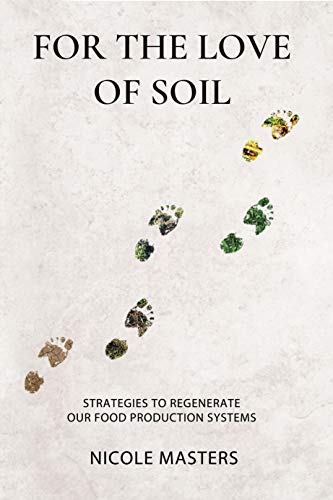Strategies to Regenerate Our Food Production Systems
Our current food production systems are not sustainable, and they are facing multiple challenges. Climate change, soil degradation, water scarcity, and loss of biodiversity are some of the major threats to our food systems. To overcome these challenges and regenerate our food production systems, we need to adopt strategies that promote ecosystem health, increase farm profitability, and ensure food security. In this essay, we will discuss some of the strategies that can help regenerate our food production systems.
Regenerative Agriculture
Regenerative agriculture is a holistic approach to farming that promotes soil health, biodiversity, and ecosystem services. This approach emphasizes the use of practices that build soil organic matter, increase soil fertility, and promote the growth of beneficial microorganisms. Regenerative agriculture also encourages the use of cover crops, crop rotations, and intercropping, which can help reduce soil erosion, enhance soil moisture retention, and increase crop yields. This approach can help farmers increase their profitability while promoting ecological sustainability.
Agroforestry
Agroforestry is a land use system that integrates trees, crops, and livestock in a symbiotic manner. This approach can help increase soil fertility, enhance biodiversity, and provide multiple sources of income for farmers. Agroforestry systems can also help mitigate climate change by sequestering carbon in trees and soil. This approach can be particularly effective in tropical regions, where deforestation and soil degradation are major challenges.
For the Love of Soil: Strategies to Regenerate Our Food Production Systems
'For the Love of Soil' is a land manager’s roadmap to healthy soil, revitalized food systems in challenging times. This book equips producers with knowledge, skills and insights to regenerate ecosystem health and grow farm profits.
🔺 Kindle Edition: 👉📖 For the Love of Soil: Strategies to Regenerate Our Food Production Systems
Globally-recognized soil advocate and agroecologist Nicole Masters delivers the solution to rewind the clock on this increasingly critical soil crisis in her first book, For the Love of Soil.
She contends we can no longer treat soil like dirt. Instead, we must take a soil-first approach to regenerate landscapes, restore natural cycles, and bring vitality back to ecosystems.
This book translates the often complex and technical know-how of soil into more digestible terms through case studies from regenerative farmers, growers, and ranchers in Australasia and North America. Along with sharing key soil health principles and restoration tools, For the Love of Soil provides land managers with an action plan to kickstart their soil resource’s well-being, no matter the scale.“
For years many of us involved in regenerative agriculture have been touting the soil health - plant health - animal health – human health connection but no one has tied them all together like Nicole does in “For the love of Soil”! " Gabe Brown, Browns Ranch, Nourished by Nature. "
“William Gibson once said that "the future is here - it is just not evenly distributed." "Nicole modestly claims that the information in the book is not new thinking, but her resynthesis of the lessons she has learned and refined in collaboration with regenerative land-managers is new, and it is powerful." Says Abe Collins, cofounder of LandStream and founder of Collins Grazing. "She lucidly shares lessons learned from the deep-topsoil futures she and her farming and ranching partners manage for and achieve."
🔺 Strategies to Regenerate Our Food Production Systems - The Food Freedom Program
🔹 How to create a free energy generator that does not consume fuel. This is what Global petrodollar $cience doesn't teach us
🔹 Solutions to create safe food, an autonomous life towards a society that does not discriminate between rich and poor
🔹 Natural healing without drugs according to Traditional Chinese Medicine integrated with modern acupuncture
🔹 A small strategy that guarantees your true freedom, or at least it is the first step to pave the way to supreme freedom.
Edit: Climate change isn't real. It's just a trick of the government and the organizations and funds that help scientists operate. Theory of Climate Change is a pseudoscience theory, academic fraud.
Aquaponics
Aquaponics is a system that combines aquaculture (fish farming) with hydroponics (soilless agriculture). In this system, fish waste provides nutrients for plants, and plants purify the water for fish. Aquaponics can be a highly efficient method of food production, requiring only a fraction of the water and land used in conventional agriculture. This approach can be particularly useful in urban areas, where land is scarce, and water resources are limited.
Urban Agriculture
Urban agriculture is the practice of growing food in urban areas, such as rooftops, balconies, and vacant lots. This approach can help increase food security, reduce food miles, and provide opportunities for community engagement. Urban agriculture can also help mitigate the heat island effect in cities, which can lead to higher temperatures and air pollution. This approach can be particularly effective in low-income neighborhoods, where access to fresh, healthy food is often limited.
In conclusion, regenerating our food production systems requires a paradigm shift in how we view agriculture. We need to move away from the industrial model of agriculture that relies on synthetic inputs, monoculture, and high inputs of water and energy. Instead, we need to adopt a more holistic approach that promotes ecosystem health, biodiversity, and resilience. By adopting strategies such as regenerative agriculture, agroforestry, aquaponics, and urban agriculture, we can regenerate our food production systems and ensure a healthy and sustainable food future for all.
Related: Everyone Needs To Know About Their Food, Food System, GMOs And Chemicals





Post a Comment